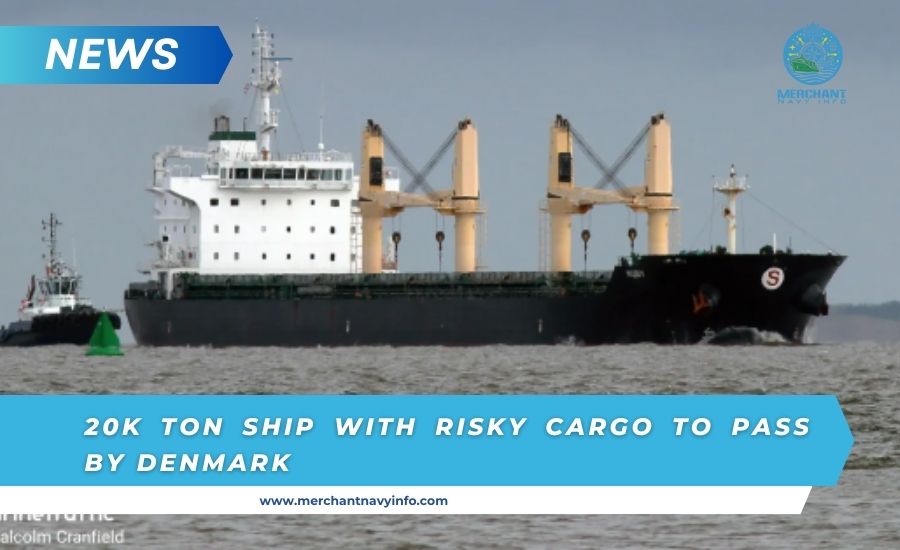
Ship with 20 thousand tons of Russian dangerous cargo to sail past Denmark
A ship carrying 20,000 tons of Russian dangerous cargo will pass through Denmark. Some countries have denied entry to a ship carrying large quantities of Russian fertilizers that can be used to make explosives.
The Danish Maritime Authority announced that it is monitoring the movements of the Rubis, which is carrying 20,000 tons of Russian ammonium nitrate, DR reported. This fertilizer can also be used to make explosives.
According to media reports, the Rubis, which flies the Maltese flag, is scheduled to enter Danish territorial waters on September 21, crossing the Great Belt Strait between the Danish islands of Zealand and Funen.
The Danish Maritime Authority may know that the ship has limited maneuverability and carries dangerous goods. “In view of this, we have set several conditions to ensure maritime safety,” the agency said.
Among the safety measures, the Rubis has been ordered to be towed in Danish waters, with a Danish pilot on board to help navigate a safer route.
The ship first attracted attention in early September when it tried to dock in the Norwegian port of Tromsø due to storm damage. However, both Norway and later Sweden refused to accept it.
Danish media reported that the amount of ammonium nitrate on board the Rubis was enough to cause an explosion seven times more powerful than the 2020 Beirut port explosion, which killed more than 200 people if a fire broke out.
Despite reports that the Rubis was heading to Lithuania, Danish media said Lithuania refused to accept a ship carrying such dangerous goods. The ship was scheduled to enter the Baltic Sea after passing through the Great Belt on the afternoon of September 21.
The Danish Maritime Authority stressed its commitment to monitor the situation closely and said: “We have put in place a number of conditions to ensure safety at sea.”









